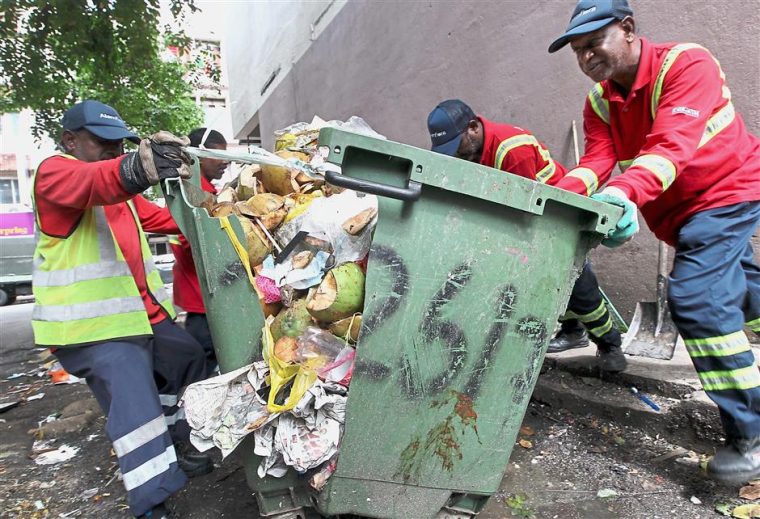
“If you don’t study hard, you’ll become like that abang garbageman!”
How many of us received such advice from older relatives during our childhood? While it was probably meant well, over the years such advice has led to a serious problem in Malaysia: a lack of local interest in 3D (Dirty, Dangerous, Difficult) jobs.
The 3D View
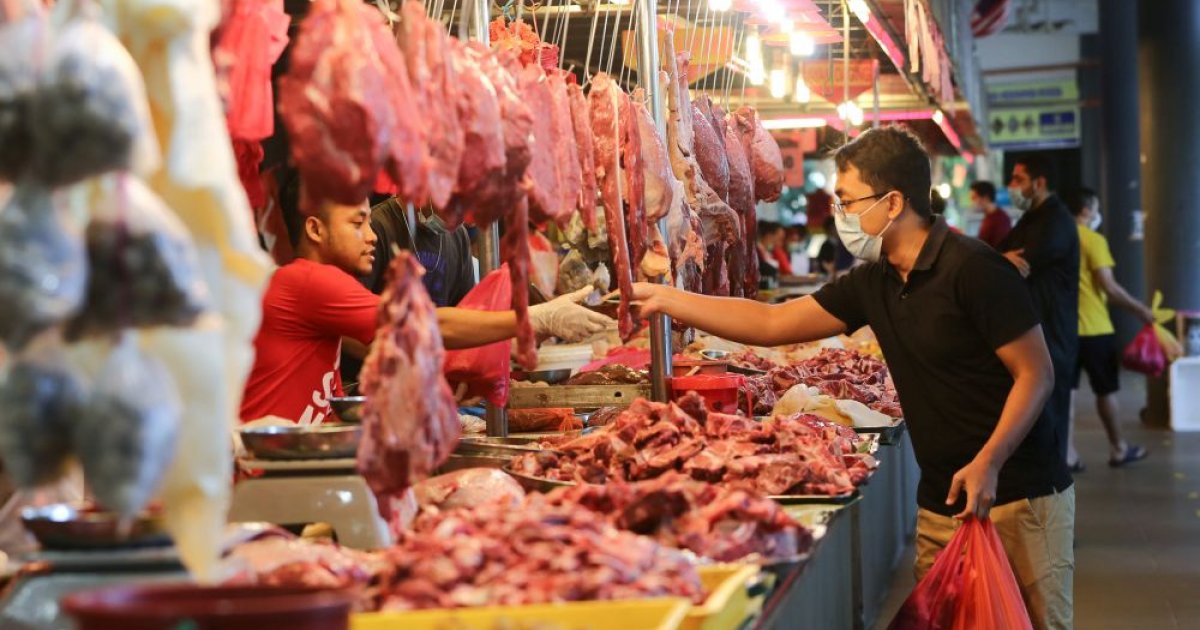
For me, one of the clearest examples of the way many Malaysians think about 3D jobs actually comes from a Star article published earlier just last week.
The article, “From HR manager to a wet market butcher overnight“, came out on Monday, 13 July 2020. It started out as a standard ‘feel-good’ story about Mohd Haniff MA Shamsuddin, a former human resources manager who went from trimming the fat off his company’s workforce to trimming fat off cuts of meat after losing his job and signing up for work as a wet market butcher.
This was obviously intended to be an inspiring story, with plenty of encouraging lines such as “It didn’t take long to find a job. The difference is whether you want it or not” and “When I entered the market sector, I have a desire to open my own business. So, I want to learn every aspect of it, (and) so I’m starting at the bottom”.
But then in the last few paragraphs, there’s an awkward addition: “hours after Haniff was interviewed by Bernama, he tendered his resignation, saying that he had got a job offer. When contacted, he said his boss at his old company had offered him a position there with more pay.“
So in other words, despite all the ex-HR guy’s talk about working hard and opening up his own business, the moment he received a better offer he jumped ship and went back to his old company.
Is It All About the Money?
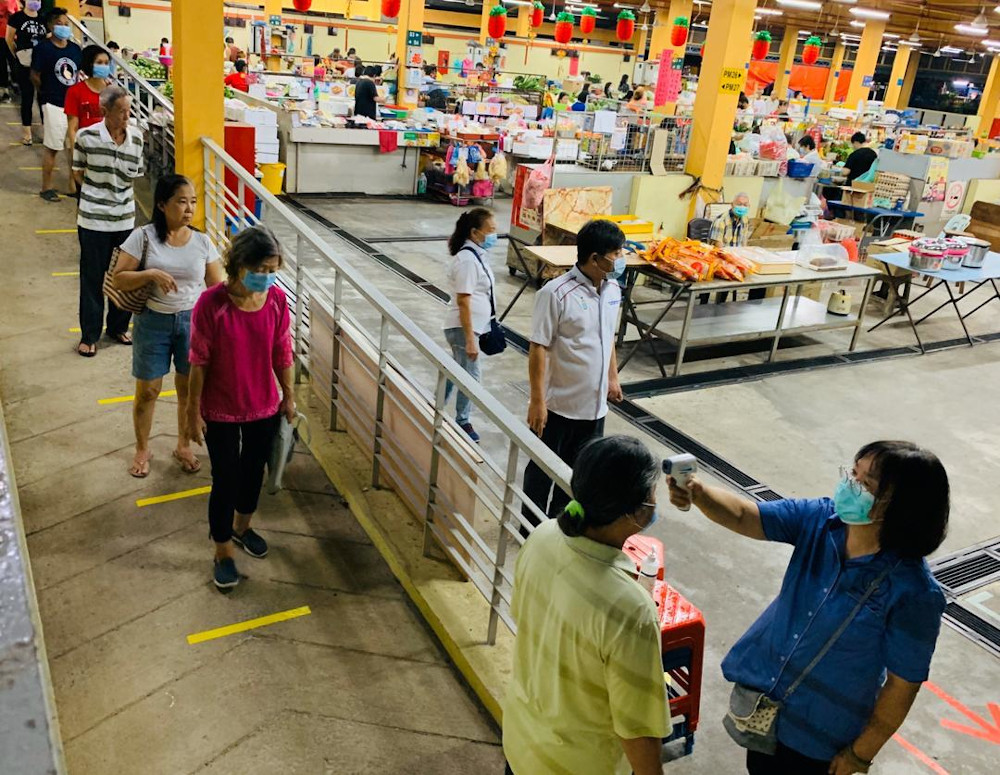
Is Haniff a bad guy for picking a job that offered better pay? Of course not. No one’s going to begrudge someone for trying to support his family.
But at the same time, it’s hard not to feel bad for Anuar Abdullah, the owner of the meat stall who hired Haniff, taught him everything he could about handling the job, and was left scrambling to find a replacement after Haniff left.
Aside from his stall, Anuar is also the president of the PJ Old Town Wet Market Traders’ Association, a position that often involves getting down and dirty with the butchers, fish-mongers, and all the other “dirty” jobs involved in a wet market. He’s seen far too many Malaysians come asking for a job, only to quickly leave because they couldn’t handle the workload.
“It’s not that we haven’t done as the government has asked.” he said. “We have tried (recruiting locals) before. But Malaysians don’t like this type of work.”
Who Wants to Spend All Day Picking Up Garbage?

While every ambitious student races to get prestigious high paying careers with all sorts of fancy titles, a lot of other jobs end up falling by the wayside — jobs like waiters, cleaners, wet market stall owners, garbage collectors, construction workers, etc.
These jobs may not be as glamorous, but they are still essential for keeping society running.
If every single garbage collector in KL quit at once, you can bet that people would notice quickly. It’s the same for many of these 3D jobs.
So Why Aren’t Malaysians Interested in Working 3D Jobs?
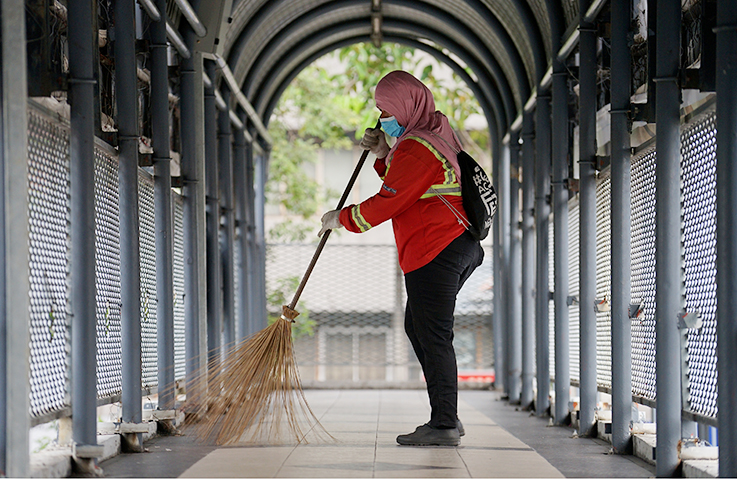
There are a couple of reasons why most young Malaysians would rather ignore the opportunities offered by 3D careers. Some of them may seem trivial at first glance, but the truth is that they are all actually pretty significant.
Social Stigma
Let’s be honest: we have a culture that tends to look down on “dirty” jobs.
How many of us have heard advice like “Study hard or you’ll become like that mak cik cleaning the road” when we were younger? Even jobs like waitering are usually seen as temporary jobs for students to earn some pocket money while studying.
I suspect that part of this stigma might stem from our colonial past, when hundreds of thousands of Chinese and Indians were brought in to work in industries such as tin mining or rubber tapping. But though the vast majority of us have moved past such racist stereotyping, we still have a tendency of looking down on jobs that involve getting sweaty or smelly.
Low Pay
One of the reasons why our beloved mamak stalls can afford to sell low priced food such as Roti Canai is because of their reliance on foreign workers rather than locals.
“Mamak sell cheap food. If we get locals as frontliners, it’ll greatly increase the food cost,” said restaurant owner Mr. Muthusamy, President of Malaysian Indian Restaurant Owners Association (Primas).
It wasn’t until February 2020 that the minimum wage went up to RM1,200 (about RM5.77 per hour). In 2019, this minimum wage was RM1,100. From 2016 to 2018, it was RM1,000. And before that, the wage was as low as RM900!
This minimum wage increase came as a great relief for workers all across the country who were struggling to cope with the rising cost of living, but even with this wage increase 3D jobs still aren’t as appealing to locals as they normally don’t include benefits such as EPF or Sosco.
Bad Workers?
During the MCO, the government prohibited Pudu wet market traders from hiring migrant workers and advised them to hire locals instead. Sounds like a good idea, right? After all, by hiring locals they could help support the local community and keep the economy running.
The catch? According to the traders, local workers just aren’t cutting it.
“I only managed to hire four local workers and I actually need 10,” said Federation of Vegetable Sellers Association Malaysia president Chong Tek Keong. “But the locals are only able to work half the usual load a migrant worker can do. So I’m actually short of eight workers instead of six, because it takes two local workers to complete one migrant worker’s job load.”
Third-generation trader Ms Lau was also unhappy with local workers, complaining about their reluctance to do “tough jobs” involving heavy lifting or cleaning, even if they’re being paid more compared to migrant workers.
“Some of the migrant workers I’ve hired have been working for me for 15 years and they have been good help to me,” she said. “They are willing to work long hours and they can multitask.”
Is It Even Possible For Malaysians to Replace Foreign Workers?
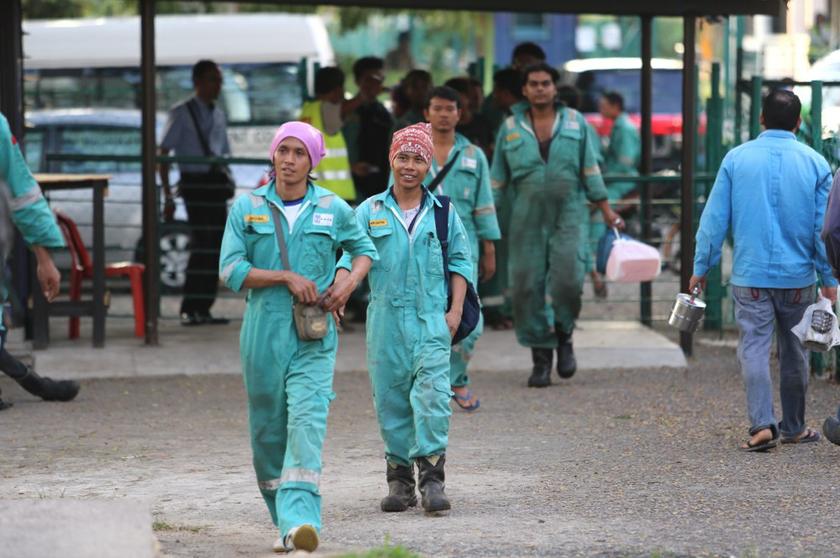
In an interview earlier this month, Universiti Malaysia Sabah psychology and education professor Murnizam Halik questioned whether locals would be able to take over the work normally done by illegal immigrants even if they wanted to.
Pointing out that foreigners played important roles in sectors such as construction, plantation and agriculture, Murnizam said that while there were increasing numbers of local Malaysians willing to take up 3D jobs after the COVID-19 lockdown, it is uncertain how many of them will be able to stay in such jobs long term.
“When the economy improves and better jobs are made available, they may seek better opportunities,” he explained. Just like how Haniff dropped his budding butcher career after his previous company called and offered him a job, there’s nothing stopping young Malaysians from simply quitting their 3D jobs once they find something that pays better.
Aside from that, physical health was also a factor, especially among older workers — for example, a middle-aged manager who’s spent years doing office work would find it harder to get a job in a physically demanding industry such as construction simply because they physically can’t keep up with the work involved.
How Can We Make These Jobs More Appealing for Young Malaysians?

Wait, why are you asking me?
Seriously, I work in an office. The most difficult exercise of my day is walking up and down the stairs during lunch break. Unless you’re interested in a copy-pasted rant about “lazy millennials” or something, I’m really not qualified to give advice about physically strenuous 3D jobs.
That said, I do have one idea:
Apprenticeships
Back when I was living in the UK, one thing that impressed me about their education system was that high school graduates weren’t just expected to go straight to university. They also offered side options such as “Apprenticeships”, where you could sign up for a job like plumber, electrician, etc.
Apprenticeships involved being partnered with a more experienced worker who’d show you the ropes and teach you everything you needed to know. And it wasn’t a glorified internship either — apprentices would get paid for their time as if they were an actual employee!
While it probably wouldn’t be suitable for every 3D job, setting up a similar system here in Malaysia might be a good way of providing recent graduates with practical skills and hands-on work experience.
Showing Your Appreciation

If we want to make 3D jobs more appealing, we need to start by changing our own attitudes. The next time you see a cleaner or garbageman or construction worker, don’t tell your kids “Be careful or you’ll end up like them!”
Instead, just say “Thank you.”
While the MCO has ended, are things really getting better for us in Malaysia? Click HERE to find out if Malaysians really are on the road to recovery.








